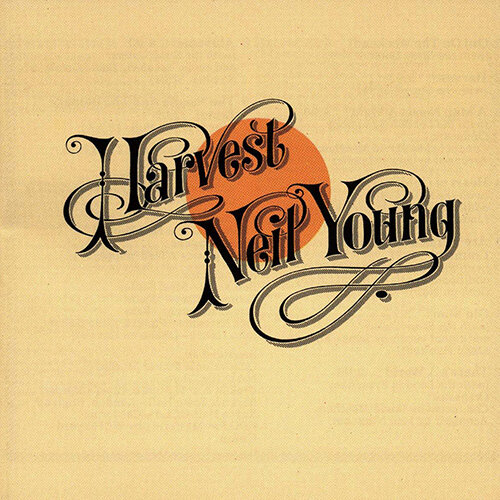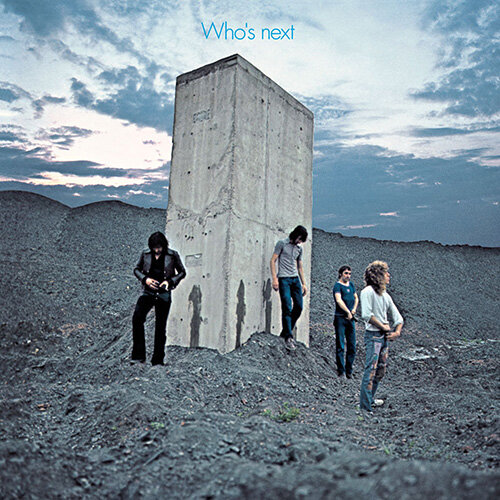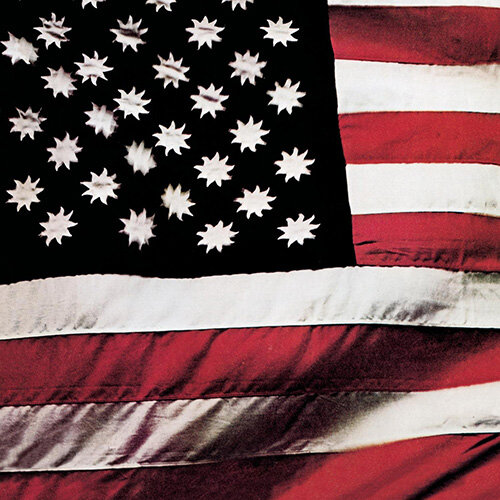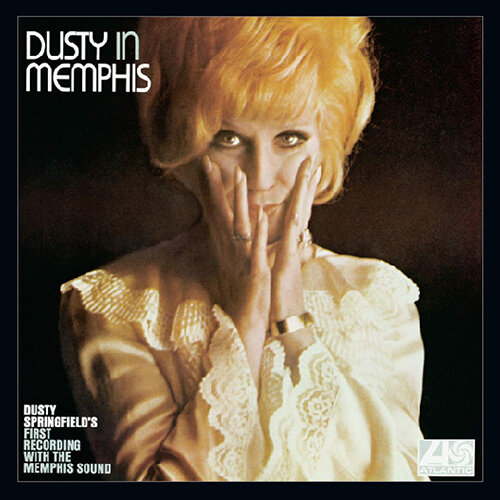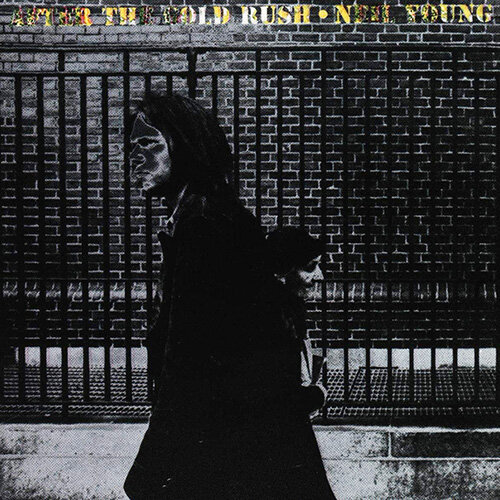#71 Bob Marley and the Wailers, 'Exodus' (1977)
Following an attempt on his life in which a bullet grazed his chest and hit his arm, Bob Marley packed it all up and left for London. Marley’s wife, Rita was also shot in the assignation attempt. The gunmen sought to halt what they considered to be Marley’s politically progressive music. And so he went into exile. The album, inspired by the ever-changing political climate in Jamaica, features themes of politics, change, religion and sex.
#72 Neil Young, 'Harvest' (1972)
The 6th entry by Neil Young and I suspect his last, because how do you top ‘Harvest’? Surely his magnum opus. Following the breakup of Crosby, Stills, Nash and Young, Neil Young put together a group of Country Rock musicians called the Stray Gators, which included Jack Nitzsche, known for his work with The Rolling Stones and Neil Young’s previous works. Opening with ‘Out On The Weekend,’ we’re eased into the record; Neil Young’s voice sounding better than ever.
#73 My Bloody Valentine, 'Loveless' (1991)
Perfect timing as My Bloody Valentine only just made their music available on streaming a few weeks ago. Their second album was a landmark in the Shoegaze genre with guitarist-producer, Kevin Shields redefining the sound of recorded guitar. The band would spend 2 and a half years recording this in a total of nineteen different studios and cost upwards of £250,000 to produce. Creation Records label boss, Alan McGee found Shields too difficult to work with and subsequently dropped the band from the label following the release of ‘Loveless.’ In fact the high production costs drove the label into bankruptcy.
#74 Kanye West, 'The College Dropout' (2004)
The debut release by Yeezy makes a significant jump. In the years preceding this record, West was an acclaimed producer for artists such as Jay-Z and Talib Kweli but he was never taken seriously as an artist in his own right by the powers that be. True to form, he spent 4 years recording and perfecting what would eventually become ‘The College Dropout.’ Before redefining his production later on, West pioneered Chipmunk Soul, a technique in which he would sample old Soul and RnB records and speed them up. It became a bit of a thing in Hip Hop before West abandoned it for that very reason.
#75 Aretha Franklin, 'Lady Soul' (1968)
On her third collaboration with Atlantic Records, Aretha Franklin gives us her career-defining performance. Lady Soul, as she had come to be known, could not be a more fitting title. During her tenure with Columbia, Franklin wasn’t quite allowed to reach her potential. Jerry Wexler at Atlantic allowed her to soar and this is the album on which she takes full flight.
#76 Curtis Mayfield, 'Superfly' (1972)
This was another major standout for me last time around. Arguably the most iconic Blaxploitation soundtrack of all time. Starting with stabbing horns and Mayfield’s sweet voice, ‘Little Child Runnin’ Wild’ sets the scene; father’s split, mother’s struggling to make ends meet and the little child is running around the streets. He runs into the Pusherman (aka drug dealer) who turns him onto a life of addiction. The kid wants more but all his money’s gone. The next song, ‘Pusherman,’ is a smooth, funky song in total contrast to the previous. This one’s from the perspective of the dealer.
#77 The Who, 'Who's Next' (1971)
Following their epic Rock Opera, ‘Tommy’ (#190), The Who found their audience was starting to move on. The Mod Movement was all but gone, their original followers had grown up, gotten jobs and started families. The younger crowd that was coming to see them wanted them to play ‘My Generation’ and smash guitars. Pete Townshend had started work on the follow up, ‘Lifehouse,’ another Rock Opera based in a near-future society where music is banned and the population is forced to live indoors in Government-controlled suits. Wait a second… does this sound eerily familiar?
#78 Elvis Presley, 'The Sun Sessions' (1976)
On 18 July 1953, a young 18-year-old Memphis kid walked into Sun Record Company. He paid $3.98 to record a double-sided demo as a birthday gift for his dear mum. The fact that the family didn’t own a record player was besides the point. After recording a second demo, he was brought to the attention of Sun Studios owner, Sam Phillips. Phillips invited the young man to join Scotty Moore and Bill Black in studio to record some songs.
#79 Frank Ocean, 'Blond' (2016)
Following the release of his ground-breaking album, ‘Channel Orange’ (#148), Frank Ocean owed label, Def Jam, one more album. 3 years in the making, Ocean didn’t want to give his next record, ‘Blond’ to the label. Instead came the visual release, ‘Endless,’ which fulfilled his obligations to Def Jam. Mere hours later, in the early hours of the next morning, Ocean dropped ‘Blond’ (taking a leaf out of friend, Beyoncé’s book - #81). ‘Blond’ was recorded across three cities in three famous studios; Electric Lady (New York), Abbey Road Studios (London) and Henson (LA, the location of Charlie Chaplin’s old studios).
#80 The Sex Pistols, 'Never Mind the Bollocks, Here’s the Sex Pistols' (1977)
Arguably the greatest and most influential Punk record of all time, ‘Never Mind The Bollocks, Here’s The Sex Pistols.’ Controversy after controversy follows the band, and this, their only album. A thing of legend, really. Besides for the fact that their band name is named after the euphemism for a penis, the album title features the word “bollocks,” leading many record stores’ refusal to stock it. Even the charts at the time refused to list its title.
#81 Beyoncé, 'Beyoncé' (2013)
I’ve been waiting for Beyoncé to show up. With this album, Beyoncé changed the rules. She redefined herself as an artist and simultaneously redefined the way albums could be released. She gave birth to first child, Blue Ivy at the start of 2012 and would return to work just 3 months later, making a point that mothers need not indefinitely pause their careers to raise children. ‘Beyoncé’ was recorded in strict secrecy, which is a miracle in itself in the age of social media. And seemingly out of nowhere, without warning, the record was released on 13 December 2013 in the early hours.
#82 Sly and the Family Stone, 'There’s a Riot Goin’ On' (1971)
In mid 1971 Marvin Gaye asked the question ‘What’s Going On?,’ and Sly and the Family Stone answered ‘There’s A Riot Goin’ On.’ This release was a darker, more political and militant record than their previous works such as ‘Stand!’ (#119). It was marked by Sly Stone’s increased drug use and his growing involvement with the Black Panther Party, which drove a wedge between him and his band members.
#83 Dusty Springfield, 'Dusty in Memphis' (1969)
Six years after releasing her first single, Dusty Springfield’s career was in decline. In 1969 artists like Led Zeppelin, The Doors, Jimi Hendrix and Janis Joplin were on the rise. Woodstock was about to happen and music was moving on from Dusty Springfield. Also, Carole King was embarking on a solo career and Springfield’s relationship with Burt Bacharach and Hal David was souring; all songwriters who had helped shape her career. In the hopes of reinvigorating her career, Springfield signed to Atlantic Records, home to her hero, Aretha Franklin.
#84 AC/DC, 'Back in Black' (1980)
On the 19th February 1980, following a particularly heavy night of binge drinking in London, AC/DC vocalist, Bon Scott was pronounced dead. His death devastated his band, who, at the time, were poised to be the biggest band on earth. They considered breaking up but were convinced by friends and family to continue. They recruited Brian Johnson as their new vocalist and by 25 July 1980, they released this, their seventh album with its entirely black cover artwork as a sign of respect to Scott.
#85 John Lennon, 'Plastic Ono Band' (1970)
John Lennon’s debut album and first issue of music since the official dissolution of The Beatles in April 1970, is raw musically and cathartic & introspective lyrically. A far cry from the music of his band. Lennon, and wife, Yoko Ono, undertook primal therapy following the public break up of his band, which inspired a lot of the music on ‘Plastic Ono Band.’ Opening with ‘Mother,’ the song addresses his feeling of abandonment by his parents (Lennon was famously raised by his Aunt Mimi)/
#86 The Doors, 'The Doors' (1967)
The Doors were discovered by Elektra Records founder at one of their residency shows at the Whisky A Go Go on the Sunset Strip. He was there at the behest of Love frontman, Arthur Lee. An unusual set up whereby bass was replaced by organ, the guitarist had only been playing a few months and the beats coming from the drummer were Jazz influenced. The lead singer, Jim Morrison, was enigmatic and profane. He signed them and hired producer, Paul A. Rothchild to record their debut. For me, this is a 5-star album.
#87 Miles Davis, 'Bitches Brew' (1970)
An album that flipped Jazz on its head, ‘Bitches Brew’ is one trippy journey. I had come to know Miles Davis from the album, ‘Kind Of Blue.’ This is not that record, nor does it even resemble the artist that created it. With the growing popularity of Jimi Hendrix and Sly and the Family Stone, Davis wanted to reach their audiences with their music. He would employ the services of John McLaughlin to play guitar and incorporated electric pianos into the sound.
#88 David Bowie, 'Hunky Dory' (1971)
In a sign of things to come, on his fourth album, David Bowie reinvented his down opting to create a record of more piano-driven pop as opposed to the guitar-driven music he was known for. ‘The Man Who Sold The World’ did poorly commercially, and his label, RCA decided not to promote this record much as they were worried that he would change his image and sound again after this. They weren’t wrong about that, but what they were wrong about is that Bowie’s chameleon-like ability is what made him so great. This is definitely the body of work where he starts to sound like David Bowie.
#89 Erykah Badu, 'Baduizm' (1997)
Another new entry for the Queen Of Neo Soul, Ms Erykah Badu; this time her debut. In the lead up to this record, Badu dropped out of her Theatre degree at university to focus on music full-time. To support herself, she would take on multiple minimum wage jobs. The album was inspired by Brandy’s debut, as well as Badu’s African roots. Drums play a major part of this record, and like her follow up, ‘Mama’s Gun, (#158), Questlove was behind the kit.
#90 Neil Young, 'After the Gold Rush' (1970)
‘After The Gold Rush,’ Neil Young’s third album, is one of the most poignant in his catalogue. Its sound is Crazy Horse meets Crosby, Stills, Nash and Young. No surprise, really, as Young was in the midst of touring with CSNY (they would play Woodstock on this tour) and had been recording their second release, ‘Déjà Vu.’

